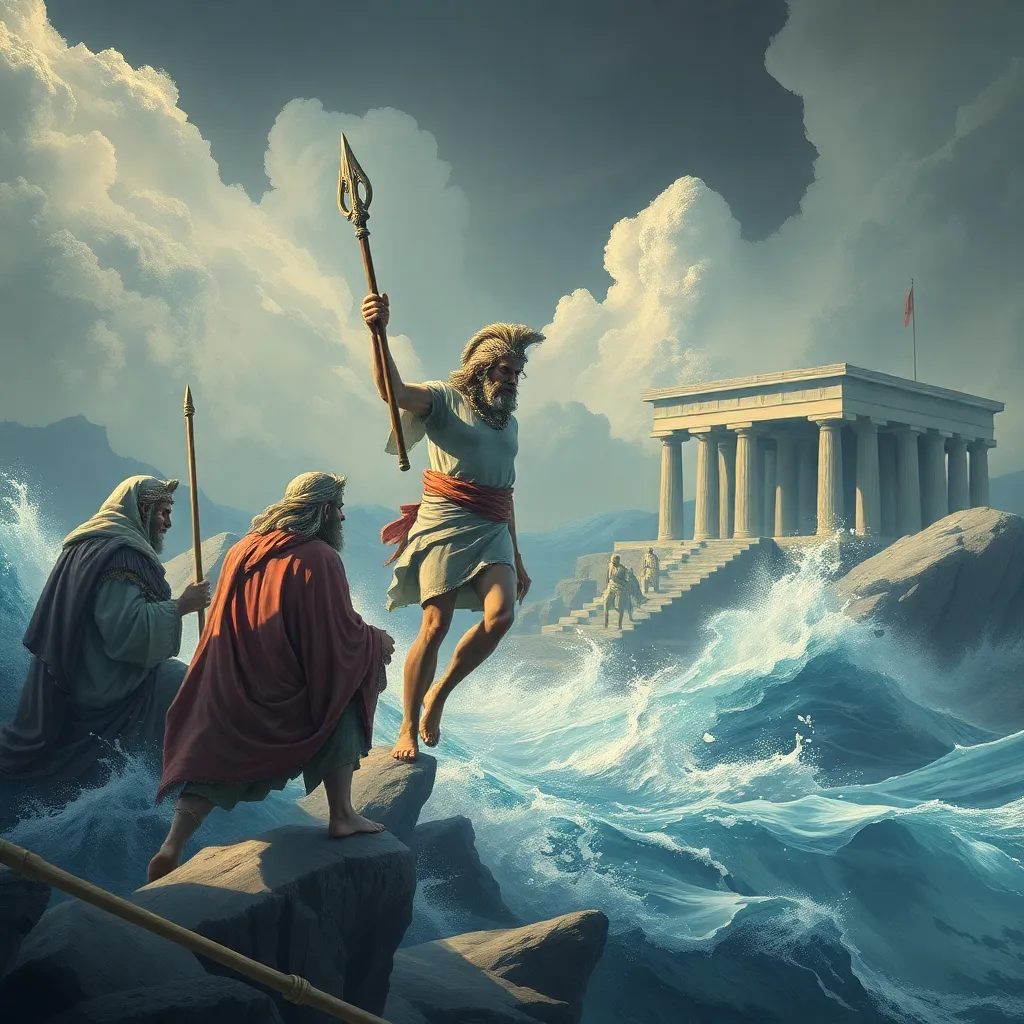Lessons from Odysseus: Leadership and Strategy in The Odyssey
I. Introduction
The epic poem “The Odyssey,” attributed to Homer, is a cornerstone of Western literature, exploring themes of heroism, adventure, and the human experience. This narrative follows the journey of Odysseus, King of Ithaca, as he strives to return home after the Trojan War, facing numerous challenges along the way. “The Odyssey” is not just a tale of adventure; it serves as a profound exploration of leadership and strategy, showcasing the multifaceted character of Odysseus.
Odysseus emerges as a complex leader, embodying the qualities of both a strategist and a thinker. His journey is fraught with trials that test his intellect, adaptability, and morality. In this article, we will delve into key lessons from Odysseus’s journey, examining how they apply to modern leadership and strategic thinking.
II. The Value of Adaptability
One of the most significant attributes of Odysseus is his ability to adapt to changing circumstances. Throughout “The Odyssey,” he encounters a variety of challenges that require him to modify his tactics and strategies.
- The Cyclops: When trapped by the Cyclops Polyphemus, Odysseus devises a clever plan to escape by introducing himself as “Nobody” and blinding the giant. This adaptability allows him to turn a dire situation into a successful escape.
- The Sirens: Knowing that the Sirens’ songs could lead to destruction, Odysseus instructs his crew to plug their ears with beeswax and ties himself to the mast. This foresight and adaptability enable him to experience the Sirens’ call without succumbing to their lure.
These examples highlight the importance of being adaptable in leadership and strategic planning. In a rapidly changing world, leaders must be willing to pivot and adjust their strategies to achieve their goals effectively.
III. The Importance of Intelligence Over Strength
Odysseus’s cunning nature is a defining feature of his character. He often relies on his wit and intelligence rather than brute strength to overcome obstacles.
- The Trojan Horse: His most famous act of cunning, the Trojan Horse, demonstrates how intelligence can outsmart a seemingly stronger opponent. By devising this clever ruse, Odysseus played a pivotal role in the Greek victory at Troy.
- The Encounter with Circe: Instead of confronting Circe with force, Odysseus uses Hermes’ advice to negotiate and ultimately gain her assistance, showcasing the power of wit over aggression.
These instances underscore the value of strategic thinking in contemporary contexts. In modern leadership, success often hinges on the ability to think critically and creatively rather than relying solely on physical power or authority.
IV. The Role of Teamwork and Loyalty
Odysseus’s journey illustrates the significance of teamwork and loyalty. His relationship with his crew is both complex and critical to his success.
- Loyalty of his Crew: Despite the numerous challenges they face, the loyalty of his men is paramount. Their willingness to follow him, even when faced with danger, is a testament to Odysseus’s leadership.
- Dynamics of Leadership: Odysseus often has to manage the dynamics of his crew, ensuring that they work together effectively. His ability to inspire loyalty and cohesion is essential for their survival.
Building and maintaining team cohesion is a vital lesson for modern leaders. A successful leader fosters an environment of trust and collaboration, recognizing that teamwork often leads to greater achievements than individual efforts.
V. The Necessity of Clear Communication
Effective communication is another critical aspect of Odysseus’s leadership. Throughout his journey, instances of communication shape outcomes significantly.
- Warnings Against Circe: When Odysseus receives guidance from Hermes about Circe, his ability to communicate this information clearly to his crew is vital for their safety.
- Miscommunication Consequences: The failure to heed warnings leads to dire consequences, such as when his men eat the cattle of Helios, resulting in their destruction.
These examples highlight the impact of miscommunication on outcomes. Modern leaders can learn from Odysseus by prioritizing clear and effective communication to ensure that messages are conveyed accurately and understood by all team members.
VI. The Balance Between Caution and Boldness
Odysseus demonstrates a keen sense of when to be cautious and when to take bold risks throughout his travels.
- Calculated Risks: His decision to investigate the island of the Cyclopes is a calculated risk that ultimately pays off despite the immediate danger.
- Caution in the Underworld: Conversely, his journey to the Underworld showcases caution as he seeks knowledge without recklessly endangering himself or his crew.
Finding the right balance between caution and boldness is crucial in decision-making. Leaders must assess situations carefully and decide when to take risks and when to proceed with caution.
VII. The Influence of Personal Values and Ethics
Odysseus’s journey is marked by moral dilemmas that shape his leadership style and decision-making.
- Moral Dilemmas: Throughout “The Odyssey,” Odysseus faces choices that test his character and ethics, such as his treatment of the suitors upon returning home.
- Personal Values: His commitment to loyalty, honor, and the well-being of his crew reflects the values he holds dear, which guide his actions as a leader.
The relevance of ethics in modern leadership cannot be overstated. Leaders today must navigate complex moral landscapes, and personal values play a significant role in shaping their decisions and leadership style.
VIII. Conclusion
In conclusion, the journey of Odysseus offers timeless lessons in leadership and strategy. His adaptability, intelligence, emphasis on teamwork, clear communication, balance of caution and boldness, and adherence to personal values are qualities that resonate with contemporary leaders.
As we reflect on these lessons, it is clear that the insights gained from Odysseus’s journey can be applied to our own leadership practices. By embracing these qualities, we can navigate the complexities of modern leadership and strive for excellence in our endeavors.
We encourage readers to consider how they can apply these insights in their own leadership journeys, fostering growth and success in their personal and professional lives.




